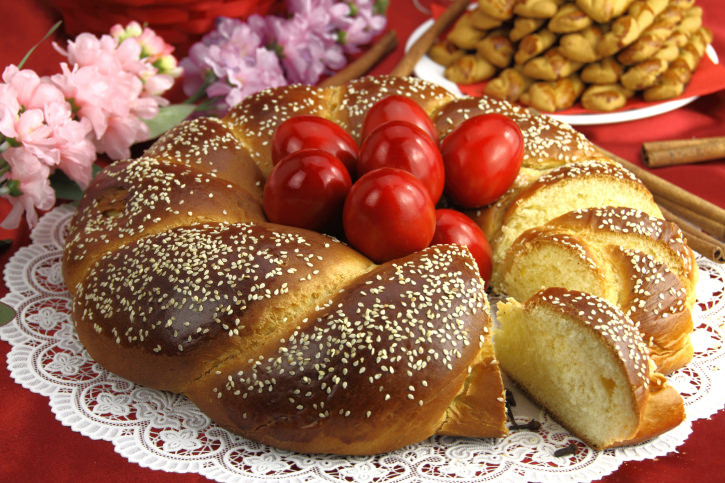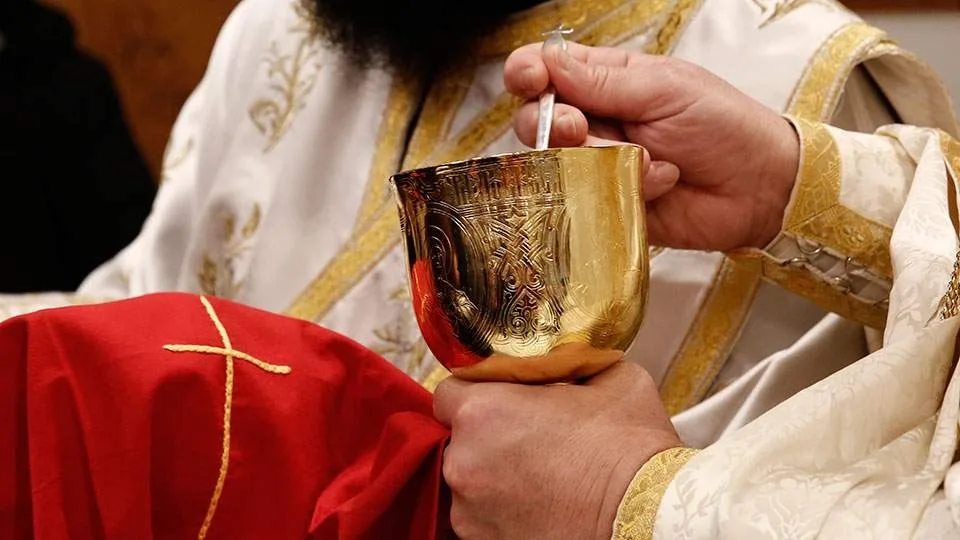On Holy Thursday, four events are commemorated: the washing of the disciples’ feet, the institution of the Sacrament of the Holy Eucharist at the Last Supper, the agony in the garden of Gethsemane, and the betrayal of Christ by Judas.
Holy Thursday is when many Orthodox Easter preparations begin. Most significantly, Holy Thursday is the traditional day when tsoureki is baked, and eggs are dyed red to represent the blood of Christ.
From ancient times, the red eggs have been a symbol of the renewal of life, carrying the message of victory over death. Many Greeks carry on the ancient tradition of placing the first red egg at the home’s iconostasis (the place where icons are displayed) to ward off evil.
While Tsoureki is prepared on Easter Thursday, it is not eaten until Easter Sunday. The most common shape for the sweet bread is the braid, yet other shapes can be formed.

According to tradition, tsoureki is baked to symbolise the Resurrection of Christ and his rebirth. The rising of the bread is set to symbolise Christ’s Resurrection, with the red eggs, usually placed on top of the braid, symbolising the blood of Jesus.
Several unique services mark the Orthodox celebration of Holy Thursday. The main service of the day is the Vesperal Divine Liturgy of Saint Basil that is conducted on Holy Thursday morning.
The commemorations of Holy Friday begin on Thursday evening with the Matins service of the day. The service is a very unique Matins service with twelve Gospel readings that begin with Christ’s discourse at the Last Supper and end with the account of His burial.
